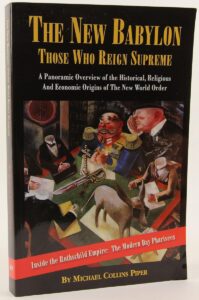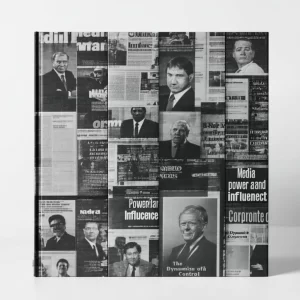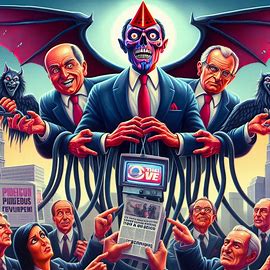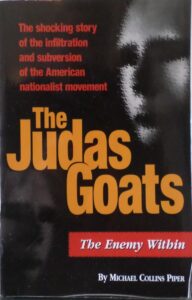In his pivotal examination of American plutocracy, The Rich and the Super-Rich, Ferdinand Lundberg offered a striking portrayal of mid-1960s America.
He observed that while the United States was celebrated as the wealthiest and most powerful nation in the world, most Americans owned little beyond household items, gadgets like automobiles and televisions—often purchased on installment plans—and the clothes on their backs.
Many lived in substandard housing, from shacks and cabins to deteriorating apartments and Victorian homes in disrepair.
Meanwhile, a small segment of the population enjoyed wealth and luxury reminiscent of royalty in Arabian Nights tales.
Lundberg’s assessment highlighted the stark disparities within the American socioeconomic structure.
Fast forward to the 21st century, and the dynamics of wealth and power have evolved.
America’s elite now wield influence that rivals, if not surpasses, the wealth of the much-discussed Arab sheikhs.
Particularly notable is the concentration of wealth and influence among American Jews.
Their economic and political clout has grown substantially since Lundberg’s era, shaping many aspects of American society.
Although Lundberg’s books predate the significant rise in Jewish wealth and influence, they remain valuable resources for understanding the broader trends of American plutocracy.

The escalation of Jewish media influence mirrors their growing prominence in other areas, a topic explored by Jewish scholar Norman Cantor in his book The Sacred Chain: The History of the Jews (1994).
Cantor’s candid observations drew criticism from some quarters of the Jewish community.
He noted that, by the mid-20th century, American Jews had achieved unprecedented levels of prosperity and influence.
They dominated academia, the professions, corporate business, politics, government, and, crucially, the media.
In 1994, Jews comprised just three percent of the U.S. population, yet their influence was equivalent to an ethnic group making up twenty percent.
Cantor described this ascent as unparalleled in Jewish history, surpassing the achievements of Jewish communities in Muslim Spain, early 20th-century Germany, and even modern Israel, where wealth and power on such a scale were absent.
He concluded that the traditional titans of American wealth—the Morgans, Rockefellers, Harrimans, and Kennedys—had been supplanted by what he termed the “flawless achiever,” epitomized by Jewish leaders like the late billionaire Lawrence Tisch, who once controlled CBS.
This transformation underscores the growing role of media influence in consolidating power.
The rise of figures like Tisch exemplifies how Jewish achievement and influence have reshaped the landscape of wealth and authority in modern America.

The Rise of Jewish Families in American Wealth and Power
While many powerful Jewish families remain relatively unknown to the public, a select few have become synonymous with immense wealth and influence in America.
Their impact is particularly evident in the mass media, where their reach shapes industries and public perception.
Among these families, the Bronfmans stand out as a dominant force worth close examination.
The Bronfman Family: From Crime Syndicate to Global Power
The Bronfman family’s rise began in early 20th-century Canada, where they played a pivotal role in the crime syndicate, working closely with the internationally influential Meyer Lansky.
Lansky, a longtime leader of the U.S.-based crime syndicate, collaborated with the Bronfmans to support infamous figures like Al Capone.
In fact, as detailed in The New Babylon, Al Capone was largely a “front man” for the Jewish crime lords operating behind the scenes, including the Bronfmans and Lansky.
Despite these mob connections, Sam Bronfman, the dynasty’s founder, ascended to public prominence as a respected philanthropist and president of the World Jewish Congress.
His story exemplifies the complex duality of power, combining shadowy beginnings with public acclaim.

Exploring the Bronfman Legacy
Two notable books delve into the history and influence of the Bronfman family:
- The Bronfman Dynasty: The Rothschilds of the New World by Peter C. Newman (1978)
- The Bronfmans: The Rise and Fall of the House of Seagram by Nicholas Faith (2006)
While the Bronfman name is often associated with Seagram’s liquor, these works reveal their expansive involvement in finance, industry, real estate, and especially the media.
Time Warner: The Crown Jewel of Bronfman Media Holdings
The Bronfman family’s media influence reached extraordinary heights through their control of Time Warner, at one time the largest media corporation in the world by revenue.
Time Warner, with over 200 subsidiaries, became a global empire after merging with Warner Communications in the 1980s.
Warner Communications itself has roots linked to Lansky’s crime syndicate.
The merger of Warner Brothers Studios with the Canadian-based Seven Arts Production Company in 1967 played a key role in this transformation.
Seven Arts was founded by Louis Chesler, a known associate of Lansky and a figure in the Jewish crime syndicate.
Although the Bronfmans’ Seagram Company did not gain a controlling interest in Time Warner until 1993, their influence within the company was evident long before.
Under Edgar Bronfman’s leadership, the company experienced expansive growth.
Like his father, Edgar also served as president of the World Jewish Congress, further cementing the family’s global influence.

A Family That Redefined Power
The Bronfman family’s trajectory—from their roots in organized crime to their dominance in media and industry—demonstrates the complexity of wealth and influence in modern history.
Their legacy, as chronicled in these accounts, underscores their lasting impact on the global landscape of power, finance, and media.
The Web of Influence: Bronfmans and Newhouse in American Media
Jewish families like the Bronfmans and the Newhouses have become prominent players in American media and beyond.
Their ventures span vast industries, linking organized crime, global influence, and media dominance.
Investors Overseas Service and the Bronfman Connection
A key player in the Bronfman-dominated media empire was Investors Overseas Service (IOS), a money-laundering enterprise led by Bernard Cornfeld.
Cornfeld, a flamboyant figure, acted as a front for Swiss banker Tibor Rosenbaum.
Rosenbaum, tied to Israel’s Mossad, also controlled Banque De Credit Internationale, which laundered funds for the Lansky crime syndicate’s drug and gambling operations.
The Bronfmans, having transitioned from organized crime into “legitimacy,” naturally became integral to the operations of Time Warner, a media empire with deep and complex connections.
Time Warner’s Vast Holdings
The Bronfman family’s control of Time Warner included an impressive array of assets, underscoring their influence in global media.
While holdings evolved over time, the scope of their empire was extraordinary:
Major Time Warner Media Assets
- Home Video: Time-Life Video, HBO Video, Warner Home Video
- Cable Franchises: Reaching over 11.7 million subscribers
- Television Networks: Turner Broadcasting, CNN (including CNN International, TBS Superstation, Headline News)
- Magazines: Time, People, Sports Illustrated, Life, Fortune, Money, Vogue, GQ, Vanity Fair, The New Yorker, and more
- Book Publishing: Little, Brown & Co., Warner Books, Book-of-the-Month Club
This dominance positioned Time Warner as a leading force in shaping public opinion and media consumption worldwide.

Seagram’s Expansion into Media
The Bronfman family didn’t stop at Time Warner. Under Edgar Bronfman Jr., Seagram transformed into a major media powerhouse.
Acquiring control of MCA (originally a talent agency turned studio giant), the Bronfmans added Universal Studios, Universal Music Group, Polygram, and various European and Latin American TV channels to their portfolio.
This expansion deepened the Bronfmans’ media influence, reinforcing their connection to organized crime elements and Zionist networks.
The Newhouse Media Empire
Another Jewish family with considerable media influence is the Newhouses, led by S.I. “Si” Newhouse and his brother Donald. Their father, Samuel Newhouse, built the dynasty from humble beginnings into a media colossus.
Newhouse Newspapers
The Newhouse family owns numerous newspapers across the U.S., including:
- Birmingham News (Alabama)
- The Mobile Press (Alabama)
- The New Orleans Times-Picayune (Louisiana)
- The Oregonian (Oregon)
- The Plain Dealer (Cleveland, Ohio)
- The Patriot-News (Harrisburg, Pennsylvania)
Newhouse Magazines
Their magazine holdings include globally recognized publications:
- Architectural Digest
- Bon Appétit
- Glamour
- Vogue
- The New Yorker
Critical Accounts of the Newhouse Legacy
Two major works provide insight into the Newhouse media dynasty, both casting a critical eye on its operations:
- Newhouse: All the Glitter, Power, and Glory of America’s Richest Media Empire and the Secretive Man Behind It by Thomas Maier (1997).
- The Kingdom and the Power by Gay Talese.
These accounts highlight the vast influence wielded by the Newhouse family and their role in shaping public discourse.
The Consolidation of Media Power
The Bronfman and Newhouse families exemplify the consolidation of wealth and influence within the media industry.
Their intertwined connections to organized crime, Zionist movements, and global business underscore their lasting impact on the cultural and political landscape.
The Power Behind the Press: Newhouse, Murdoch, and Media Influence
Jewish families like the Newhouses and Rupert Murdoch’s media empire have had a profound influence on the global media landscape.
Their rise to power reveals a blend of strategy, ambition, and controversial connections, shaping public discourse for decades.

Newhouse: The Media Merchant
Carol Felsenthal’s Citizen Newhouse: Portrait of a Media Merchant (1998) offers a deep dive into the Newhouse empire.
Publisher’s Weekly described it as “an often penetrating look at the Machiavellian politics” behind the sleek façade of the Newhouse dynasty.
The Harrisburg Patriot Acquisition
One of the most intriguing stories of the Newhouse dynasty’s expansion involves the acquisition of The Harrisburg Patriot, a daily newspaper in Pennsylvania’s state capital.
Its longtime publisher, a progressive opposed to media monopolies, explicitly requested that his widow avoid selling the paper to Jewish publishing barons.
However, Samuel Newhouse, founder of the dynasty, orchestrated the purchase using a Gentile frontman.
The widow, shocked to learn of this deception, realized the paper had fallen into the hands of the very type of mogul her husband had sought to avoid.
Other Controversial Purchases
When Newhouse acquired The Times-Picayune in New Orleans, he reportedly bragged, “I just bought New Orleans.” These bold acquisitions reflect the empire’s aggressive expansion and significant regional influence.
Rupert Murdoch: The Fox Phenomenon
In The Judas Goats, the rise of Rupert Murdoch’s media empire is explored, detailing its role in spreading neoconservative, pro-Zionist propaganda.
Murdoch’s influence extends far beyond Fox News, shaping the global media narrative.
Key Murdoch Media Holdings
Murdoch’s empire includes a vast array of outlets, reflecting its dominance in news, entertainment, and publishing:
- Magazines: The Weekly Standard, led by William Kristol, which played a pivotal role in promoting neoconservative foreign policy, including the Iraq War.
- Newspapers: The New York Post, The Wall Street Journal, and major British publications like The Times and News of the World.
- Television: Fox Broadcasting, including stations in major U.S. cities such as Chicago, Atlanta, Boston, and Washington, D.C.
- Cable Networks: Fox News Channel, reaching 300 million subscribers worldwide.
- Film and Publishing: Twentieth Century Fox studios and HarperCollins Publishers, overseeing multiple renowned imprints like William Morrow & Company and Zondervan.
Cultural Impact
Murdoch’s outlets have elevated conservative voices like Sean Hannity, Bill O’Reilly, and Laura Ingraham, while advancing a distinct ideological agenda.
Fox News, in particular, has been described as one of the most divisive and influential forces in contemporary media.

The Liberal Backlash: Media Bias and Cultural Shifts
Murdoch’s rise coincided with growing public dissatisfaction with the perceived liberal slant of traditional networks like ABC, CBS, and NBC. By the late 1960s, Americans criticized these outlets for:
- Liberal Bias: Anchors like CBS’s Walter Cronkite were seen as symbols of progressive propaganda.
- Sleaze and Vulgarity: Content increasingly attacked traditional values, favoring counter-culture themes over Christian morality or patriotic ideals.
- Jewish Media Influence: Critics noted that editorial decisions were often controlled by a small group of Jewish families and financial groups.
Media Empires and Their Legacy
The Newhouse and Murdoch empires exemplify the consolidation of media power in the hands of a few influential families. Their influence has shaped public opinion, cultural values, and political discourse in profound ways.
As the media landscape continues to evolve, these families’ legacies remain central to understanding how information is controlled and disseminated in the modern world.
A Critical Look at Media Influence: The Role of Murdoch and Jewish Interests
The relationship between media empires, political agendas, and the influence of powerful families has been a topic of intense debate.
The emergence of Rupert Murdoch as a global media mogul, backed by notable Jewish families, sheds light on the complex interplay between wealth, media, and politics.
Dissatisfaction with the Liberal Media
By the late 20th century, many Americans grew disillusioned with the perceived liberal bias of the three major networks—ABC, CBS, and NBC.
This dissatisfaction often manifested as quiet discussions about “Jewish control of the media” in America’s heartland.
While public figures like Spiro Agnew, General George Brown, and Hollywood icons Marlon Brando and Truman Capote occasionally voiced concerns about disproportionate Jewish influence, the topic largely remained taboo.
This discontent laid the groundwork for Ronald Reagan’s 1980 presidential victory.
Reagan’s campaign promised a “new conservatism” that resonated with those seeking an alternative to the existing media narratives.
However, as history unfolded, this shift opened the door for Rupert Murdoch, a foreign-born tycoon, to present himself as the champion of conservative ideals.

Murdoch’s Rise and Backing
Murdoch’s ascent in the media world was not solely a result of his business acumen.
Wealthy and influential Jewish families, including the Rothschilds of Europe, the Bronfmans of Canada, and the Oppenheimers of South Africa, provided crucial sponsorship and financial backing.
These alliances allowed Murdoch to expand his media empire from Australia to Britain and eventually the United States.
Murdoch’s rapid success earned him immense wealth and influence, placing him alongside his benefactors in what some have called “The Billionaire Gang of Four.”
His News Corporation empire, bolstered by lucrative advertising revenues, transformed Murdoch into one of the most powerful figures in global media.
Murdoch’s Media and Its Contradictions
A Double-Edged Sword for Conservatives
Murdoch’s media outlets, particularly Fox News, became the go-to platform for many Americans dissatisfied with the “liberal” media.
By focusing on “hot button” issues like abortion, gay rights, and school prayer, Fox News appealed to the Christian Right and conservative audiences.
However, Murdoch’s other media ventures, such as Fox Television, have been criticized for promoting vulgarity and moral decay.
The irony lies in how Fox News aligns with conservative values on one hand while profiting from content that undermines those very ideals.
Despite this contradiction, many conservatives continue to support Fox News, overlooking its role in perpetuating sensationalism and “sleaze.”
The Zionist Agenda and Controlled Opposition
Murdoch’s media empire has been accused of advancing a Zionist agenda, presenting itself as an “alternative” voice while serving as controlled opposition.
Fox News portrays America as the global champion of democracy and freedom, aligning its narratives with Zionist interests.
This rhetoric encourages Americans to view the country’s military and economic power as tools for advancing a global imperium.
Critics argue that this agenda uses America’s resources, military, and influence to benefit a wealthy elite.
Legislation such as the Patriot Act and other mechanisms of control have been promoted to suppress dissent, with Fox News playing a key role in framing opposition as “anti-American” or “anti-Semitic.”
The Broader Media Landscape
While Fox News is often singled out, the reality is that many major media outlets in America, regardless of their ideological leanings, contribute to promoting similar agendas.
Families like the Bronfmans, Newhouses, and Murdochs operate within a shared sphere of influence, leveraging their media empires to shape public opinion and maintain their power.

Media, Power, and the Public
The consolidation of media power in the hands of a few wealthy families has profound implications for democracy and public discourse.
Murdoch’s role as both a beneficiary and a promoter of these agendas underscores the challenges of discerning genuine alternatives in the media landscape.
For Americans seeking truth and accountability, understanding the forces behind the headlines is crucial.
Only by questioning the narratives and recognizing the underlying interests can citizens hope to reclaim control over the stories that shape their world.
